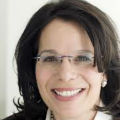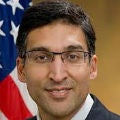Summer Socrates 2014
July 4-7, 2014






Please click here to see a tentative agenda for the weekend and here for an activity reservation form. Click here to register!
The moral limits of markets: Can markets do social good? – moderated by Clive Crook, Columnist and Member of the Editorial Board at Bloomberg View
Consumerism is an essential aspect of the U.S. market-based economy and has long been important to our national identity. In recent years, however, market values—once limited to the realm of economic transaction—have crept into nearly every aspect of American life: education, health, law, athletics, and family relationships, further widening the gap between rich and poor. Is a world where price tags drive nearly every decision a world in which we want to live? Can our democracy operate freely in conditions where everything—political campaigns, college admission, American citizenship, the right to pollute, human organs, etc.— can be bought or sold? Are there goods that markets shouldn’t bear? If not, what kind of changes can citizens and government make to allow ethics and morals back into the equation?
The Future of Internet Freedom, Free Speech and Entrepreneurship – moderated by Julius Genachowski, Managing Director, The Carlyle Group & former Chairman, FCC
Over the last two decades, the Internet has transformed how society communicates, and become a pillar of the economy. The Internet is essential for our vision of smart growth in the future, and of driving innovation, investment and job creation. And so it is also essential for the Internet to be open and accessible to all people and businesses, and that we have universally available high-speed Internet access. As use of the Internet has grown exponentially around the world, so have concerns about its defining attribute as a free and open means of communication. Around the world, societies are addressing difficult issues of free expression, censorship, and trust, and of incentives for innovation and investment in Internet applications, services and networks. With starkly different visions for the Internet’s architecture and development, this era presents challenges – and also opportunities – for ensuring the Internet remains a backbone of liberty and economic growth. This seminar will examine timely and controversial issues such as internet freedom, net neutrality, privacy, security and entrepreneurship, innovation and economic growth.
Trade, Trust and Energy: Maximizing the U.S. relationship with Latin American – moderated by Julia Sweig, Director for Latin America Studies, Council on Foreign Relations
The United States shares with Latin America an interest in cementing and protecting democratic values, as well as a set of common problems—including deadly transnational criminal threats and the mutual need to harness tomorrow’s energy resources. Trade between the United States and Latin America grew an astounding 82 percent between 1998 and 2009, surpassing the growth rates of U.S. commerce with Asia or Europe. In 2011 alone, U.S. exports to and imports from Latin America increased by more than 20 percent. Every year, the United States imports more crude oil from Mexico and Venezuela than from the entire Persian Gulf. As one Obama administration official puts it, “We do three times more business with Latin America than with China and twice as much business with Colombia [as] with Russia.”
With a 15% Hispanic population the United States is now the second-largest Spanish-speaking country in the world after Mexico. Yet given the scale of these bonds, the degree of high-level U.S. strategic thinking about the region remains disproportionately low. The result is that Latin America and the Caribbean continue to represent a missed U.S. opportunity, economically, politically and diplomatically. This seminar will explore the complications and potential of this geopolitical relationship.
Supreme Court Decisions in the 21st Century – moderated by Neal Katyal, former Solicitor General & Professor of Law, Georgetown University
Supreme Court decisions in the 21st century especially have had wide-ranging effects on personal freedoms and national politics. And these important decisions impacting civil liberties are often made with very close decisions. Recent top rulings decided by 5-4 votes include health care, DOMA, hand gun control and the U.S. presidency. This seminar will examine the pathways, politics and ethics of recent cases decided by the Supreme Court and adequacy of its historic design to manage contemporary decisions.
How is big data changing our lives? – moderated by Hari Sreenivasan, Senior Correspondent, “PBS NewsHour Weekend” and Director of Digital Partnerships, PBS & Peter Levin, former CTO, Department of Veterans Affairs
This seminar will explore the growing utility of big data for corporations and for individuals. We will discuss the potential for the “information revolution” to provide open data to empower individuals, transform industries, and drive economic growth. We will talk at a high level about some of the engineering challenges, and how they help (or impede) policy frameworks around infrastructure security and personal privacy. Finally, we will discuss some of the big data – and data interoperability – challenges that we face at the federal and commercial levels, and what we can do to address them.
For more information on Socrates Seminars and the Socrates program, please contact Melissa Ingber Director (202) 736-1077

